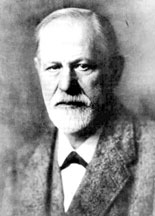Mystery of greatness
.jpg) There have been many great people in different fields of activities.
For instance, there were three great philosophers in Greece. They were
Socrates, Plato and Aristotle. When it comes to literature Geoffrey
Chaucer is considered a great poet, Isaac Newton is remembered as a
great mathematician. Who can forget the great biologist Charles Darwin
who came up with the Theory of Evolution? Those who have read 'Middle
March' will remember George Eliot as a great novelist. Sigmund Freud was
a colossus in the field of psychology. James Thurber was a great
humourist who entertained millions of readers. There have been many great people in different fields of activities.
For instance, there were three great philosophers in Greece. They were
Socrates, Plato and Aristotle. When it comes to literature Geoffrey
Chaucer is considered a great poet, Isaac Newton is remembered as a
great mathematician. Who can forget the great biologist Charles Darwin
who came up with the Theory of Evolution? Those who have read 'Middle
March' will remember George Eliot as a great novelist. Sigmund Freud was
a colossus in the field of psychology. James Thurber was a great
humourist who entertained millions of readers.
The question that baffles us is: How did they achieve greatness in
their life-time or after death? William Shakespeare said, "Be not afraid
of greatness. Some men are born great, some achieve greatness, and some
have greatness thrust upon them." The Scottish historian and essayist
Thomas Carlyle in a similar vein said, "No great man lives in vain. The
history of the world is but the biography of great men."
A great man is an outstanding person. He commands our respect instead
of demanding it. However, a great man may not be a popular person with
whom you can share a meal at a restaurant. As a cleric once said, "St.
Paul was not everybody's cup of tea." Of course, there is a close
affinity between a great man and a good man. But they may not
necessarily be the same person.
To understand the abstract term "greatness," you may have to study
the lives of some great men. For instance, Socrates earned the title
'great' for an unconventional reason. When other learned men of his time
claimed to possess a great deal of knowledge, Socrates said he knew
nothing! He was an original thinker who enlarged the scope of our
knowledge. His stature as a great philosopher stands unrivalled.
Like Socrates, the great mathematician Isaac Newton too admitted that
he was no Kilimanjaro. He said, "If I have seen further than others, it
has been by standing on the shoulders of the great." Newton was an
innocent man who could look at ordinary events with a sense of wonder.
His vision extended beyond the world of appearances into Plato's "World
of Forms."
 |
|
Sigmund Freud:
Psychoanalyst |
The great biologist Charles Darwin put forward his views on nature
and origin of plant and animal species at a time when people believed
that plant and animal species were created by God. Darwin who saw a
common pattern and similarity in plant and animal species formulated his
Theory of Evolution which has stood the test of time.
Greatness is not objective but purely subjective. In other words,
there is no greatness per se. Greatness, like beauty, lies in the eye of
the beholder. However, to be considered great, a person should have
demonstrated outstanding skills in his chosen field. Sigmund Freud, for
instance, spent more than 40 years experimenting with psychology and
psycho-analysis. He realised that there were three mental provinces
which interacted harmoniously to produce an efficient adaptation of the
individual to the external world. He designated them as the Id, the Ego
and the Super-ego.
Before Freud's analysis, dreams were supposed to be revelations of
God. He rejected the view and said that dreams were related not to the
future but to the past. He earned the title 'great' through his
carefully formulated psychological contributions.
We are always influenced by great religious leaders. The Buddha -
"The Light of Asia" - showed us the noble eight-fold path to get rid of
desires and attain the dreamless sleep of Nirvana. He condemned human
and animal sacrifices and taught us that there were better sacrifices to
be made of giving alms and renouncing worldly pleasures. For this
reason, nearly one-third of the world population venerates the Buddha.
Then we turn to Jesus Christ who founded Christianity - one of the
great religions in the world. He was born in a stable and sacrificed his
life at the age of 33. He did not travel outside his country, owned no
property and did not attend any college. His teachings may be the most
repeated in history. He said, "Love your neighbour as yourself."
"Whatsoever you would that men should do unto you, do you also unto
them." Although the world assumes that evil must be resisted by every
means available. He taught people to love their enemies.
There is so much of suffering and chaos in the world because man pays
only lip service to religious teachings.
As we study the life stories of great men, the mystery of greatness
deepens. All of them stressed the value of moral rules for human beings
to follow so that they could live in harmony. However, as A. N.
Whitehead said, "Moral education is impossible apart from the habitual
vision of greatness."
There may be degrees of greatness among great men. Similarly,
everybody cannot agree on the greatness of a particular person because
it is subjective.
Whatever that may be, we draw immense inspiration from great men in
different fields. If not for them who would enlighten and illuminate our
lives on this planet?
|

